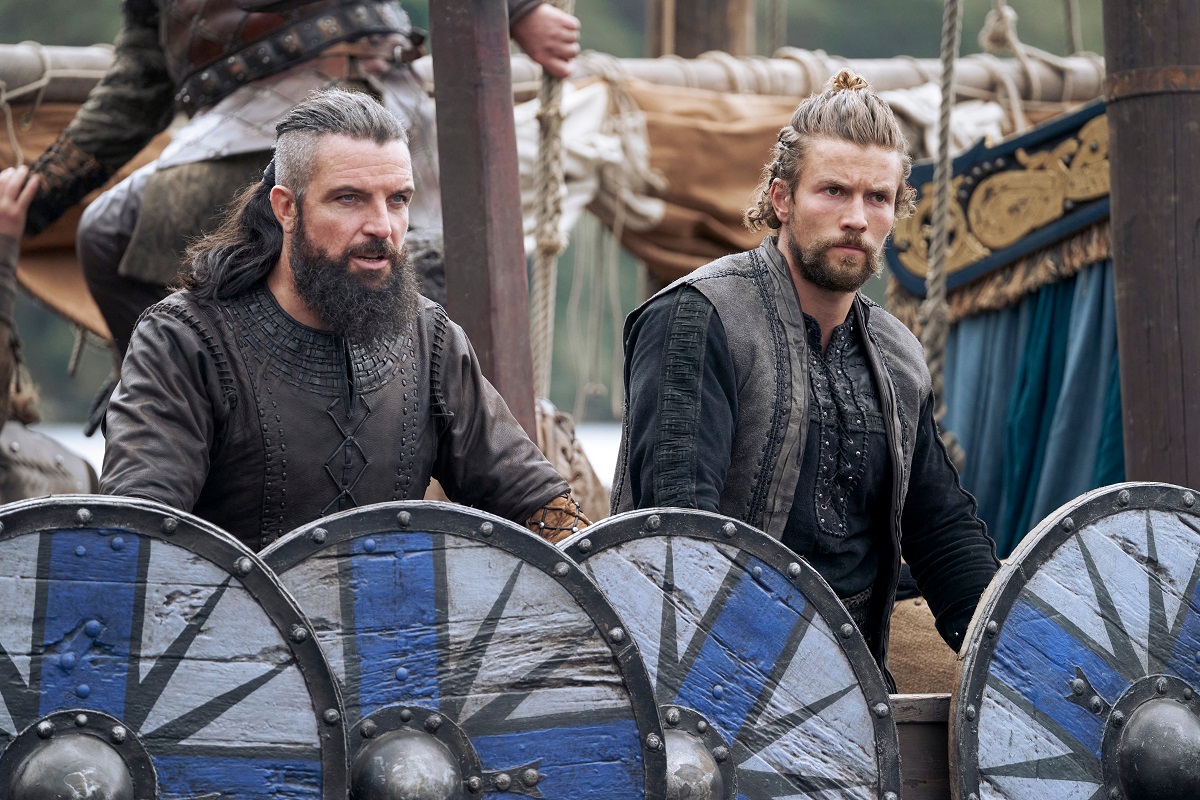I approached “Vikings: Valhalla” with a heavy skepticism. Never a big fan of the History channel original and somewhat exhausted by period action tropes, I didn’t see what this sequel series could offer. And, yes, you have to have a high tolerance for cheesy dialogue to get into “Valhalla,” but there’s a healthy degree of old-fashioned charm in this show, one that reminded me of the action syndicated programs that played on weekend afternoons in my youth. There’s just enough pretension to make it clear that the creators take it seriously, but also a slight wink and a smile from most of the cast, who know this can’t be homework. Less history lesson and more theme park ride, “Valhalla” should absolutely appeal to fans of the original show, and might even end up making a few new ones.
“Vikings” was a massive hit for the History Channel, a cable network not exactly known for big ratings. The series premiere in 2013 drew six million viewers, which is crazy numbers then and now. People like historical action, and we have long been fascinated with the era of the Vikings, even if some of the facts and depictions in “Vikings” angered the experts. After five and a half seasons on History, the second half of the final season landed at the end of 2020 on Amazon Prime Video. Now, a little over a year later, the venture sails to Netflix for “Vikings: Valhalla,” jumping forward 100 years but maintaining a similar aesthetic of warring tribes and fighting families (with a little less mysticism).

Created and written by Jeb Stuart (an ‘80s/’90s powerhouse with credits like “Die Hard” and “The Fugitive”), “Vikings: Valhalla” picks up a century after the original series, charting the arc of some of the most famous names in Norse history, including Leif Erikson, Olaf Haraldsson, and Freydís Eiríksdóttir. I can’t speak to the historical veracity of “Valhalla” (although I’m sure others will), but the show feels like it’s playing with true figures more than trying to teach viewers about their real lives, existing somewhere between reality and Viking fan-fic. It smartly doesn’t take itself too seriously, forging characters instead of worrying about sticking to the text.
“Vikings: Valhalla” opens with the arrivals of Erikson (the charismatic Sam Corlett) and his sister Freydis (the excellent Frida Gustavsson) in Norway, sailing through impossibly choppy waters to arrive there from Greenland. This casts them as outsiders to outsiders, allies of the Vikings with whom they will fight but also from a different land. They come from a people that aligns itself more with the Gods of old than the Christians of Scandinavia, including Harald Hardrada (the future star Leo Suter), who plans to avenge his father’s death against the British. The King ordered the murder of the Vikings, and much of the first season is about vengeance, both on a grand and personal scale.
Frustratingly, “Valhalla” does have a habit of losing interest in its own promising themes and arcs. For example, Frida has one of the most strongly developed motivations in the premiere, but then she’s kind of sidelined as the men go off to fight. King Edmund (Louis Davison) is thrust into the throne at too young an age, but the show only flirts with what that means. There’s a more grounded, character-driven version of “Valhalla,” but the writing here almost feels afraid to really dig into its themes of power, betrayal, religion, and even gender dynamics.
Having said that, it stays consistently entertaining even as it fails some of its best ideas. The production values are very high, resulting in a show that’s confidently made, and the cast is uniformly charismatic, the kind of people who can still look like TV stars under all that Viking dirt and grime. If you start to think about where “Vikings: Valhalla” could be richer and denser in its themes and ambitions, it’s going to let you down, but the show works on its own escapist terms. There’s also a sense that this show is merely setting the table. The first series ran for almost 100 episodes. These Vikings are just setting sail.
Five episodes screened for review.












